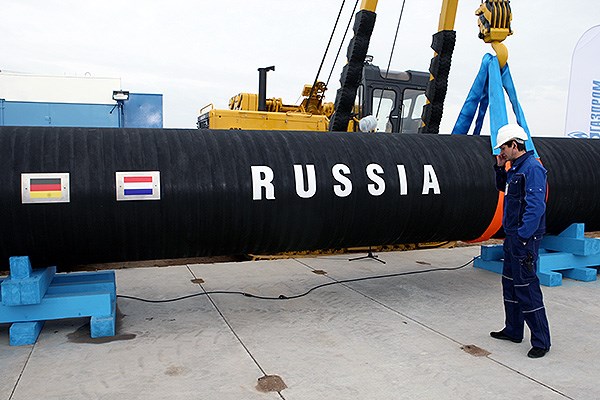U.S. Congress introduces draft bill with new sanctions against Nord Stream 2
Members of the U.S. House of Representatives have introduced a bill on additional sanctions against the Nord Stream 2 pipeline. The document entitled "Protecting Europe's Energy Security Clarification Act of 2020" accompanies a similar bill prepared in early June in the U.S. Senate.
Nine congressmen, six Republicans and three Democrats - have drafted and supported the new project. The introduction of a parallel bill usually means that senators and members of the House of Representatives who initiated these measures have a consensus that these measures are required. They want to consider additional sanctions on Nord Stream 2 simultaneously in both houses, but a compromise version of the bill has yet to be agreed.
Despite the same name of the bills, there are significant differences between them. The House of Representatives document does not contain the most stringent and sensitive sanctions proposed by Senators Ted Cruz and Jeanne Shaheen. This increases the chances that the final bill will be softer than the Senate version.
The bill, introduced in the House of Representatives, provides for the expansion of potential sanctions against ships that "lay pipes" at a depth of 100 feet (30.5 m) for Nord Stream 2 or TurkStream gas pipelines (Turkish Stream) and vessels that "lay pipes or engage in pipe-laying activities" (at the same depth). Pipe-laying activities means “activities that facilitate pipe-laying, including site preparation, trenching, surveying, placing rocks, stringing, bending, welding, coating, lowering of pipe, and backfilling". " etc.
Sanctions, according to the bill, can be imposed on foreign persons, companies and their managers who provide "underwriting", "assessment of insurance risks", insurance or reinsurance of ships" involved in the laying of pipes for Nord Stream 2, as well as against service providers and facilities for " providing services or facilities for technology upgrades or installation of welding equipment for, or retrofitting or tethering of, those vessels ."
The bill does not provide for other sanctions. At the same time, the draft, introduced in early June by senators, also involves sanctions against those who provide services for "testing, inspection and certification" of the pipeline. These sanctions will be the most significant, as without the final certificate of compliance the Nord Stream 2 gas pipeline cannot be commissioned. Such a certificate should be issued by the Norwegian company DNV GL. DNV GL said it operates "in accordance with all applicable treaties, laws and trade regulations" and, in particular, complies with sanctions. German authorities also fear that The Cruz-Shaheen bill could be extended to German state agencies, such as the German regulator, Federal Network Agency (BNetzA), which must approve the operation of Nord Stream 2.
In addition, the Senate bill is supposed to come into force retroactively: if it is passed by Congress and signed by the president, its sanctions provisions will come into force from December 2019.
There is no retroactive reservation in the parallel bill of the House of Representatives. Therefore, if it is adopted, sanctions for insurance of Nord Stream 2 pipe-laying vessels or for the refurbishment of ships will threaten only those companies that continued to provide these services as of the date of the bill's adoption.
